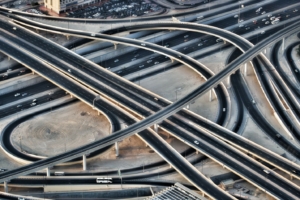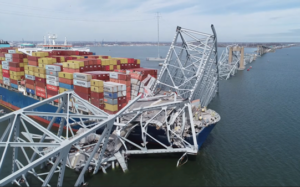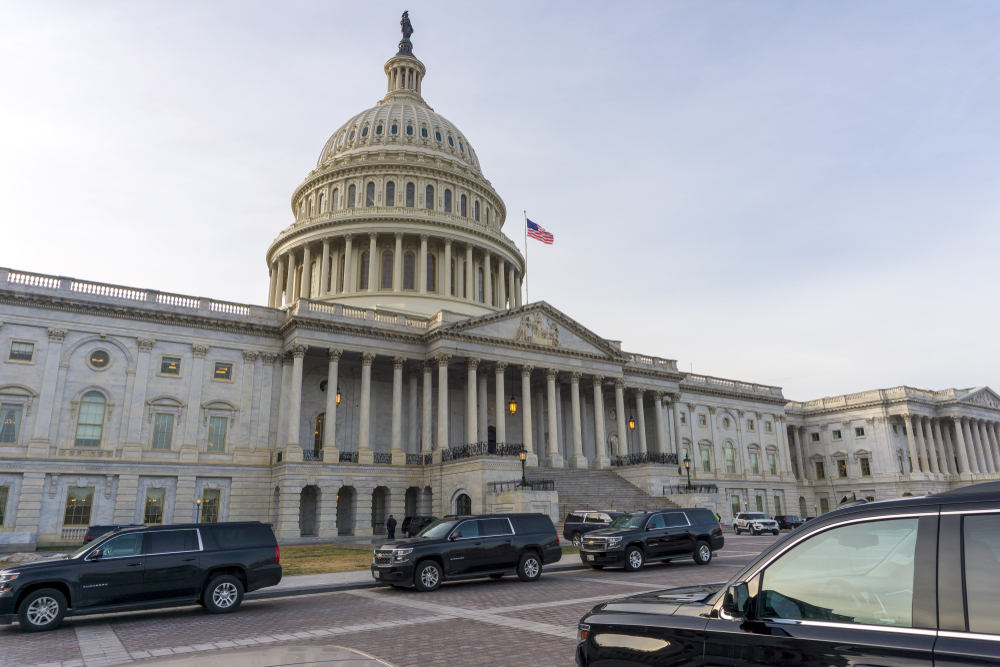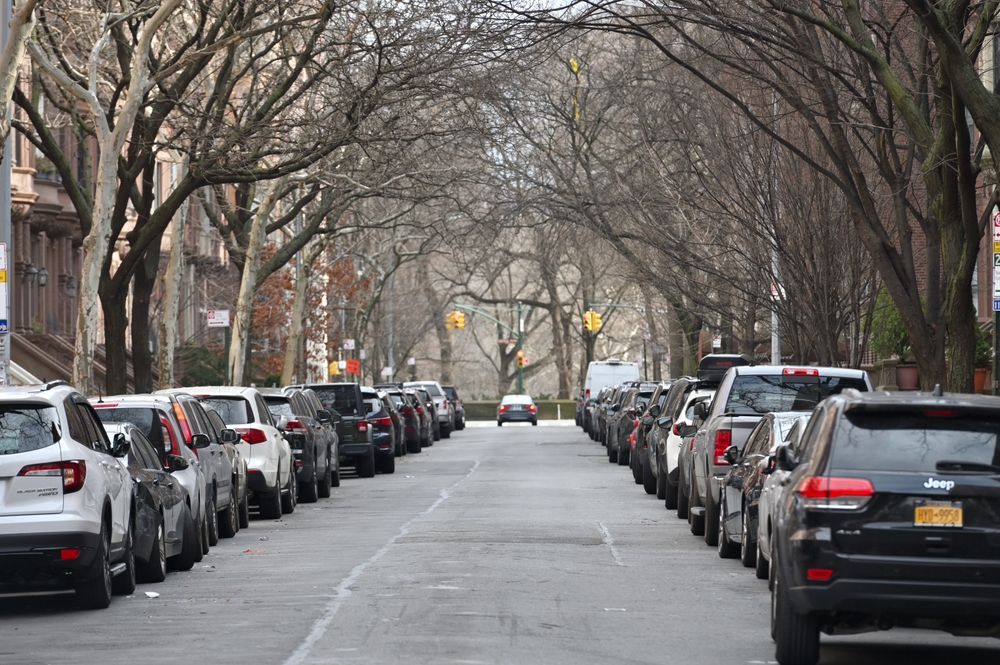cars
Auto Show Dispatch

The US’s biggest infrastructure project—bigger than the New Deal–era dams and the Erie Canal—was the highway system, which destroyed the American city and, arguably but I think not that arguably, American society itself. The country’s midcentury racist spatial self-destruction is a crime that will never be sufficiently atoned for. Whenever a child walking along a four-lane exurban road is killed by a driver who swerves into the shoulder, whenever someone is simply able to drive 98 miles per hour in a 55 zone, whenever a family of seven in an ostensibly safe minivan is killed despite the self-evident technological ability to limit speeds, redesign roads, and enforce existing regulations, it seems reasonable to infer that what car culture is really about aren’t sexy concept cars or futuristic taillights. What car culture is really about is death.
Introducing the Mileage Fee Act
by Daniel Wortel-London

Long-distance travel damages the environment and harms wellbeing. (Michael Theis, CC BY 2.0 DEED 2.0)
Economies that operate within planetary boundaries are likely to be heavily localized compared to economies today. Planners will need to shift modes of transportation and redesign cities. Businesses will need to shorten supply chains. This is because freight and passenger travel impact the environment extensively. Respecting planetary boundaries requires that we create economies that do not rely heavily on long-distance travel.
To help accomplish this goal, CASSE introduces the Mileage Fee Act (MFA). This bill is designed to assess owners of road vehicles, trains, ships, and aircraft a fee based on distance traveled. By advancing a restructuring of the ties that link people, goods, work, and recreation, the MFA can help build a more sustainable and resilient economy for all.
Long Distance, Great Impact
Americans and their goods travel great distances. At the time of the Bureau of Transportation Statistic’s most recent long-distance travel survey in 2001, trips of 50 or more miles (or 100+ miles round trip) comprised about 30 percent of all passenger travel in the USA. This amounted to about 2.6 billion long-distance trips per year, or 7.2 million per day, overwhelmingly made by automobile. And since 2001 global estimates of long-distance travel have trended upward.

Economies that depend on long-distance trade are fragile and ecologically vulnerable. (Dunk, Flickr)
Freight travel shows similar growth: More than a quarter of all goods by weight, and nearly 45 percent by market value, traveled more than 250 miles in the USA.
Long-distance travel has a number of outsized impacts. A study of food transport in the EU found that 68 percent of freight carbon emissions came from long-distance transport. Only 26 percent were from shorter hauls. The infrastructure built to accommodate motorized vehicles, whether for long-distance travel or commuting purposes, destroys habitats and uses valuable natural resources. And sprawling cities built around motor vehicles have disproportionately high impacts on biodiversity, water pollution, and the climate.
These are just the environmental damages. Sprawling cities also widen equity gaps related to lack of accessibility. Meanwhile, sourcing products from long distances impairs the economic resilience of communities. And non-local products, particularly food, are less healthy and less likely to build community than those grown and consumed locally.
On the other hand, a locally based economy has many benefits, including increased economic strength and social connection. Strategies for creating such localization include encouraging use of alternative transportation such as bicycles and public transit, and orienting urban planning to increase density. But government leaders can also use fiscal policy to create more localization in our economy. That’s where the Mileage Fee Act comes in.
Closing the Distance
The USA already levies taxes on transportation. The Airport & Airway Trust Fund is financed in part through a tax on passenger tickets and jet fuels. We have excise taxes on new freight trucks, diesel fuel, and heavy vehicles. There’s a gas and diesel tax for automobile drivers (although it hasn’t been raised since 1993). Even railroads have a diesel fuel tax of 0.1 cent per gallon.

Locally grown food is often healthier and more sustainable than food imported from long distances. (Carol M. Highsmith, CCO 1.0 DEED)
But fuel taxes are not protecting the environment. They are not high enough to fund environmental remediation, nor do they cover the costs of other externalities of road travel like pavement damage, accidents, and congestion. In 2000, for example, the Federal Highway Administration (FHWA) found that heavy commercial trucks generally pay less in federal taxes than the cost of the road damage they cause. And as more automobiles go electric, fuel-based taxes will be less effective in curbing automobile travel (and in funding transportation needs via the Highway Trust Fund).
For these reasons, many countries are turning to a “Vehicle Miles Tax (VMT)” as a supplement or alternative to fuel taxes. Such a levy could ensure that drivers of electric vehicles pay their fair share of transportation infrastructure costs. In addition, it would ensure that people who drive more pay their fair share of costs. (These drivers tend to be wealthier than those who travel less.) And it can offset falling fuel tax revenues.
Numerous cities, regions, and countries have implemented VMTs, including New Zealand, Singapore, Germany, Austria, and Poland. And U.S. states increasingly use them. Oregon, Kentucky, Washington, Minnesota, New York, and New Mexico have implemented a version of a VMT.
Moreover, VMTs are flexible enough to capture additional transportation externalities. Rates can vary by vehicle weight, fuel type, and transport mode (road, air, or rail). They can be adjusted by time of day to prevent road congestion. And governments can use funds raised by the charge to reduce other taxes or fund public transportation or other amenities.
The Mileage Fee Act
We designed the Mileage Fee Act to reduce travel distance in the USA. The purpose is to promote environmental health, social equity, and economic efficiency. The Department of the Treasury will implement the fee collection program.
Section 4 of the Act describes the target and structure of the fees. It directs the Secretary of Transportation to impose fees on vehicle owners on a per-mile basis, differentiated by mode of transport. The fee will apply to travel greater than 50 miles per one-way trip. The Secretary will assess owners of aircraft 20 cents per excess mile; owners of ships, 15 cents; heavy trucks, 10 cents; railroad cars, 5 cents; and passenger vehicles, 2.5 cents per excess mile. It will also assess owners of uncrewed vehicles such as drones.
Section 5 establishes provisions for recording and reporting vehicle miles traveled. Transportation analysts record travel distance using a variety of methods that require equipment ranging from vehicle odometers to GPS-based technology. The Act charges the Secretary of Transportation with identifying an accurate recording method that protects the privacy of owners and is immune from tampering.
Sections 6 and 7 describe how the revenue raised by this Act will be allocated. Half of all revenue will go to a new Passenger Rail Trust Fund for the purpose of improving public rail facilities, modernizing the rail fleet, and reducing energy consumption. The other half will be allocated to the existing Highway Trust Fund, which helps finance both road and mass transit construction. Because the revenue raised by this Act goes into these specific funds rather than general public budgets, we call the legislation the “Mileage Fee Act” rather than the “Mileage Tax Act.”

Mileage fees would promote local enterprises. (Lee Edwin Coursey, CC BY 2.0 DEED)
Section 8 establishes provisions for the Secretary to adjust mileage fees in the years following its adoption, based on inflation, equity, and efficiency.
Sections 9 and 10 address enforcement. They empower the Attorney General to bring civil actions to enforce compliance with this Act. Any person who violates the Act or makes false statements will be subject to the penalties identified in the IRS Handbook.
We designed the MFA as a stand-alone bill and a component of the larger Steady State Economy Act. The MFA will not, by itself, end harmful forms of transportation or unsustainable supply chains. But it will help shorten the distance to establishing local, equitable, and thriving economies that operate within planetary boundaries.
Daniel Wortel-London is a CASSE Policy Specialist focused on steady-state policy development.

The post Introducing the Mileage Fee Act appeared first on Center for the Advancement of the Steady State Economy.
Electric Boogie Woogie Wagon
Under the banner of “public investment,” yet another giveaway to corporate America.
Cartoon: Electric vehicles gone wrong
I appreciate that the new Dodge Charger EV does not have a ten foot-high grille. But it comes with an obnoxious feature called "Fratzonic Chambered Exhaust" which creates fake engine-revving sounds through a system of woofers and speakers and acoustic chambers, with a volume up to 126 decibels. According to the CDC, "loud noise above 120 dB can cause immediate harm to your ears."
Help keep this work sustainable by joining the Sorensen Subscription Service! Also on Patreon.
Can Cities Drive SUVs Off Their Streets?
In early February, Paris took a decisive step to deter visitors from driving enormous cars like SUVs in the city center. Voters approved a measure that would triple parking fees for SUVs and other large vehicles. If Paris City Council approves this measure in May, on-street parking fees for heavy vehicles will be as high as $240 for six hours, as opposed to $80 for regular cars. (Exceptions will be made for Paris residents who park in their own neighborhoods, people who use heavier vehicles because of disabilities, and professional vehicles such as taxis.) Residents of Lyon, the third-largest city in France, will vote on a similar proposal this month, and in Grenoble, residents have already voted to increase parking prices for SUVs who park in city-owned parking structures.
There are several reasons a city like Paris might want to discourage people from driving ginormous vehicles. Not only do SUVs and other large cars guzzle more fuel (and therefore emit more greenhouses gases) than regular cars, but they’re also more lethal to pedestrians and cyclists. New research published by the Virginia-based nonprofit Insurance Institute for Highway Safety showed that trucks, SUVs, and vans with hood heights greater than 40 inches were nearly twice as likely to cause a fatality in crashes with pedestrians than shorter, lighter vehicles. This adds to a growing body of research that shows bigger, heavier vehicles are more lethal in crashes — even to other cars. Children are particularly vulnerable. In New York City, half of the children killed on city streets between 2014 and 2019 were struck by SUVs or other large vehicles; in 2022, that percentage rose to a grisly 80 percent. Finally, heavy vehicles like SUVs, which can weigh over 6,000 pounds (three tons), also take a greater toll on roads.
 Voters in Paris recently approved a measure to triple parking fees for SUVs. Credit: Hadrian / Shutterstock
Voters in Paris recently approved a measure to triple parking fees for SUVs. Credit: Hadrian / Shutterstock
Following Paris’ example, Germany’s Environmental Agency (BUND) called for higher parking fees on SUVs, and so did the Association of German Cities. (So far, only the city of Tübingen has implemented such a policy.) That said, in seven European countries, the taxes residents pay when buying a combustion-engine car or truck more than double the cost of the vehicle. Those countries are Denmark, Finland, France, Iceland, Turkey, the Netherlands and Norway.
Though he’s unaware of any American city that has introduced a parking reform similar to Paris’s, Henry Grabar, author of Paved Paradise: How Parking Explains the World, thinks a policy like this is far more likely to be adopted in the US than one might expect.
“It’s less about getting rid of on-street parking spaces and more about putting the interests of city residents over those who live outside the city,” Grabar says. “So even if you were a Parisian who drives an SUV this would’ve been an appealing proposal for you, because the more you can dissuade suburbanites from driving into town and using up your parking, the more parking there is available for you.” A decade ago, Donald Shoup, the US’s foremost parking scholar, wrote a paper for Access called “Making Parking Meters Popular” suggesting exactly this policy. One way to make parking meters more palatable to voters, he argues, is to give parking discounts to local residents.
“Resident parking discounts are justified because residents already pay taxes to maintain the streets and municipal garages in their city,” he writes. This policy should also please merchants, according to Shoup, because it’ll give residents new incentives to shop locally. (In that same piece he also floated an idea to give parking discounts to smaller cars that take up less curb space. Though he suggested cities classify license plates by car length, not weight, the idea was the same as the one behind the new Paris ordinance: tax larger, less fuel-efficient vehicles.)
 Washington D.C. was the first US city to pass legislation to raise registration fees for larger vehicles. Credit: Erik Cox Photography / Shutterstock
Washington D.C. was the first US city to pass legislation to raise registration fees for larger vehicles. Credit: Erik Cox Photography / Shutterstock
That said, there are a few places in the US that are charging more for the registration of these behemoth vehicles.
Quite a bit more.
In 2022, Washington D.C. became the first city in the US to pass legislation to raise registration fees for larger vehicles. Though the move was part of the District’s broader strategy to combat climate change, Mary M. Cheh, the bill’s lead sponsor on City Council, also frequently spoke about how dangerous heavy vehicles are in pedestrian or bicycle-related accidents. Starting in October 2023, the annual registration fee for a vehicle weighing over 6,000 pounds increased to $500. (Vehicles under 3,500 pounds like the Honda Civic remained at $72 per year to register.) Electric vehicles are discounted to $36 annually, at least for the first two years. After that, an electric vehicle owner will still pay less than the standard registration fee (the deduction is determined by the car’s weight). Here, too, exceptions are made for those whose vehicle is heavier due to the accommodation of a disability. The higher fees are expected to bring in $9 million in fiscal year 2024, which will be earmarked for improving road safety around schools.
New York State is considering similar legislation. State senator Andrew Gounardes is the lead sponsor of a bill that would incrementally increase registration fees on heavier vehicles so that by 2030, the owner of a Ford Explorer (curb weight: 4,345 pounds) would have to pay $680 every two years. In this proposed legislation, even electric vehicles that weigh over 5,000 pounds would be charged the higher fees, since — even though they don’t emit carbon — they are still as likely to kill pedestrians as their gas-powered brethren. (Smaller EVs would be eligible for a $1,000 credit.)
 Proposed legislation in New York would incrementally increase registration fees on heavier vehicles. Credit: astudio / Shutterstock
Proposed legislation in New York would incrementally increase registration fees on heavier vehicles. Credit: astudio / Shutterstock
Grabar thinks it’s unlikely that something like a higher parking fee — even one that’s three times higher — would disincentivize suburbanites from buying SUVs. After all, what’s $240 every so often when you’ve spent $50,000 on your car?
“But it could potentially change peoples’ day-to-day decision-making about whether to drive their SUV to a particular location,” Grabar says. “There is a significant externality to having somebody in a giant car driving around your downtown. Chiefly, that externality comes in the form of pedestrian and bicycle fatalities.” So to Grabar, the rationale should be more, “‘You want to drive into our congested, pedestrian-friendly city center? Well, that’s fine but you’re going to have to pay for it.’ And if that payment gets you to think twice about your choice to drive it downtown then that’s exactly the goal.”
Crushed by negative news?
Sign up for the Reasons to be Cheerful newsletter.
[contact-form-7]
Tony Jordan, the founder and president of the Parking Reform Network in Portland, Oregon, says that the new Paris law is good and necessary policy. “In the United States, we’re trying to get there but we’re so far behind,” Jordan says. He thinks that there’s great opportunity for progress at the state level, though, charging a higher vehicle registration fee for heavier cars the way New York is proposing. Some states, including Oregon, are realizing that as more residents switch to electric cars, the traditional funding source for road maintenance — gas taxes — is disappearing. As a result, Oregon is considering vehicle-miles-traveled (VMT) fees — and this could be calibrated to include vehicle size.
In New York, the proposed bill is focusing solely on vehicular violence, but Jordan thinks that’s a mistake. “It’s harder, for sure, to build campaigns around multiple issues, but there are many stakeholders whose issues are impacted by very large personal vehicles,” says Jordan. “I believe there’s a lot of power in coalition-building. And coalition-building pays dividends beyond any particular campaign.”
The post Can Cities Drive SUVs Off Their Streets? appeared first on Reasons to be Cheerful.
Ford/Food

Affable volunteers, retirees of the model-railroad-enthusiast type, deliver their best chestnuts when you approach one of the transplanted structures that make up the village. Some of the big names of American business and technology are represented: there is a Wright Brothers bicycle shop, an Edison lab, a Heinz ketchup house.
Ordinary Street Cars at High Speeds

Though we were in a braking zone, which meant we would get to see the cars for an extra second as they slowed into the turn, my view of their approach was mostly obstructed by bleachers draped in a Jack Daniels ad. Still, I found myself waiting with anticipation for the cars to scream by in a blur every minute and a half. A group of twentysomethings looking for the concert stage where the Chainsmokers were playing postrace ended up staying to watch. A couple of cops nodded along to P.O.D.’s “Boom” blasting from speakers nearby.
The Road to Auto Debt

For most of us, our cars, no matter how much we cherish them, hold us in social and economic custody. As more and more vehicles are financed, and with higher loans and interest rates, creditors exert a carceral pull over our ability to earn a sustainable livelihood. Perhaps the most telling evidence of this servitude is that, in times of financial stress, households will prioritize their monthly car payments over all others, including basic necessities. Surely it is the mark of our perverse civilization when food, medical care, and housing have to take a back seat to our need to keep wheels on the road.
Highway Star

Trucking saved her, she said, but she still got lonely. Solitude became its own source of claustrophobia. “I have blue days,” Jess said. “If I slammed my truck into a mountain, would anyone notice? Does anyone know I’m out here?”
